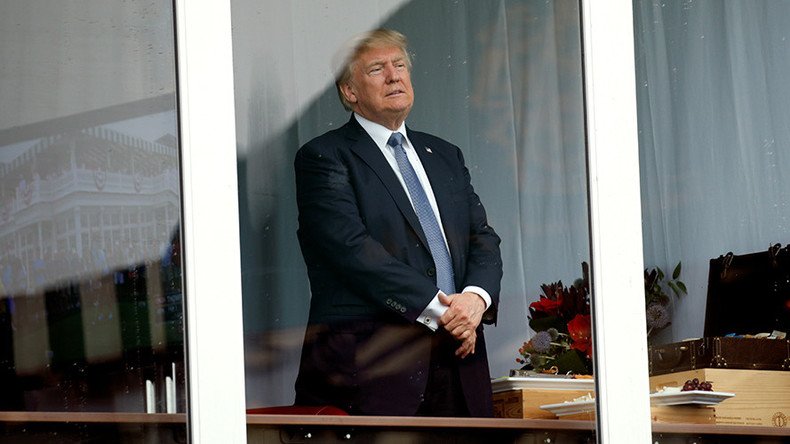'Perception of Trump’s personality formed by sustained beating in media'

Disapproval of US President Donald Trump is mostly due to his personal traits rather than policies, a recent poll shows. The negative perception owes much to a sustained propaganda campaign against Trump, Jim Jatras, former US diplomat, says.
According to a Gallup poll released earlier in July, 65 percent of Americans who disapprove of Trump base their judgement on his personality, and only 16 percent on his policies.
RT spoke to former US diplomat Jim Jatras to discuss the perception of Trump’s personality.
RT: Polls show people dislike Trump’s personality, not his policies, but does the president’s personality mean more than his actions?
Jim Jatras: Sometimes it does. Let’s remember back when Ronald Reagan was president, we heard all the time from polls that his popularity was due to his personality and that people just liked him, kind of like a favorite uncle, not necessarily liked his policies. But a lot of his supporters questioned those polls; they thought it was maybe the media’s way of trying to tear down his policy initiatives and attribute it all to his personality. In the case of Trump, Obama, or other presidents, you really do wonder sometimes how much these polls are really worth, how much the questions are slanted to produce a certain result.
Americans' reasons for Trump disapproval center on his personality/character; for Obama in July 2009, it was issues https://t.co/akVfbg9MsDpic.twitter.com/5C1kgmL4kP
— Frank Newport (@Frank_Newport) July 13, 2017
RT: Why is the reaction to Trump’s actions more negative if he largely [follows] the Obama administration policies?
JJ: I think it is mixed. I think it is very hard for people to sort that out in their mind about whether they like him or they like his policies. With regard, by the way, to whether his policies are very similar to Obama’s, I think that’s certainly true in the area of foreign policy, at least so far. But I think we see him trying to change that now after his meeting with Mr. Putin. And in general, I don’t think most Americans really think in terms of foreign policy when they are rating a president. They are looking at other things like whether he is performing on the economy, and so far, we’ve seen better growth in our economy, better growth in the jobs picture. I think those are the things that most Americans are going to look at and say is he doing a better job than Mr. Obama did.
RT: What does that say about the US electorate? Does it mean the US electorate is less concerned with real policies than a leader’s attractiveness?
JJ: If you look at the poll, the breakdown is interesting between Trump supporters and Trump opponents. Among the Trump opponents, his personality seems to be a much bigger factor than his policies. But if you look at his supporters, it is pretty much evenly split between those who like his personality, those who like his policies, and those who are rating his general job performance… And let’s remember, I don’t know of any president who has had the most sustained beating in the media, the most sustained negative propaganda campaign against him from the time he announced to the White House, certainly through the election and even intensifying after he became president. So, I am not at all surprised that among those who dislike Trump, there is a very negative perception of the man because he is impulsive; he is in your face with his Twitter, and so forth. I think all of these things go together to say: “Yes, they just don’t like that guy.”
RT: Is it a new trend in US politics?
JJ: I don’t think it is necessarily a new trend. And I think these poll results need to be taken with some degree of skepticism. An awful lot depends on how the questions are asked, a lot of it depends on what is the context of the big propaganda campaign against Trump. We never saw that kind of thing against Mr. Obama, certainly not from the major media because the major media as we know tend to the left in the US and Obama was their darling. They loved him and there was a constant stream of positive imagery of Obama, whereas the same media cannot say a good word about Donald Trump. I think that also has an impact on people’s general perceptions.
The statements, views and opinions expressed in this column are solely those of the author and do not necessarily represent those of RT.













